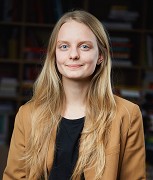

|
Thu24 Jul10:45am(15 mins)
|
Where:
A5.03
Presenter:
|

Navigating memory politics, reconciliation projects and history education, this paper will explore how Ukrainian-Polish relations since the 16th century and until today are portrayed in Ukrainian textbooks. Political instrumentalisation of historical tensions between Poland and Ukraine in the 20th century has been occurring since the mid-2000s, leading to confrontations and long-term memory conflicts and often dominating the political discourse between the two states. As these issues re-appear in 2024, suggesting their unresolved nature, it is crucial to see what role education plays in overcoming these misconceptions.
Such confrontational tendencies in memory politics were not predetermined and according to the scholars appeared against existing reconciliation trends in the 1990s. Ukrainian historian Natalia Yakovenko, in her seminal paper on “Poland and Poles in school history textbooks, or echoes of the distant and recent past” (1999), marked a crucial point of admitting mistakes and moving towards a mutual understanding and reconciliation in history and textbook writing. Despite overwhelmingly aggressive stereotypes about Poland in Ukrainian textbooks of the 1990s, concluded Yakovenko, it is a temporary phenomenon, and this tendency will end with generational change, in other words, “the process has begun”. Since the publication of this paper, multiple scholars have followed this process of transformation, among them were Leonid Zashkilniak, Oleksandr Udod, Svitlana Baturina and others. Their works allow us to see the developments in the portrayal of the Polish-Lithuanian Commonwealth and the Ukrainian part in it, as well as Polish “pacification” policies towards Ukrainians in the Second Polish Republic and the mass murder of the Polish population in Volyn by the members of Organisation of Ukrainian Nationalists during the Second World War. In most of these previous studies, attention is placed on the analysis of the events themselves, whereas my paper will concentrate on the continual formation of the following narratives that rise above the event description: confrontation, cooperation and reconciliations, shaped by the particular portrayal of the entangled Polish-Ukrainian history over the last twenty years. This study is based on the textbooks for the 8-11 grades that were published from the 2000s till the 2020s in Ukraine and were recommended for use in schools by the Ministry of Education and Science of Ukraine.